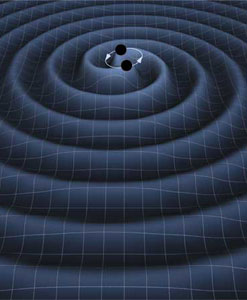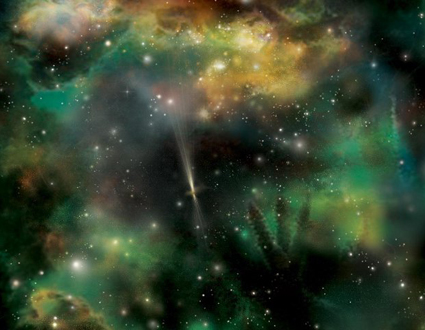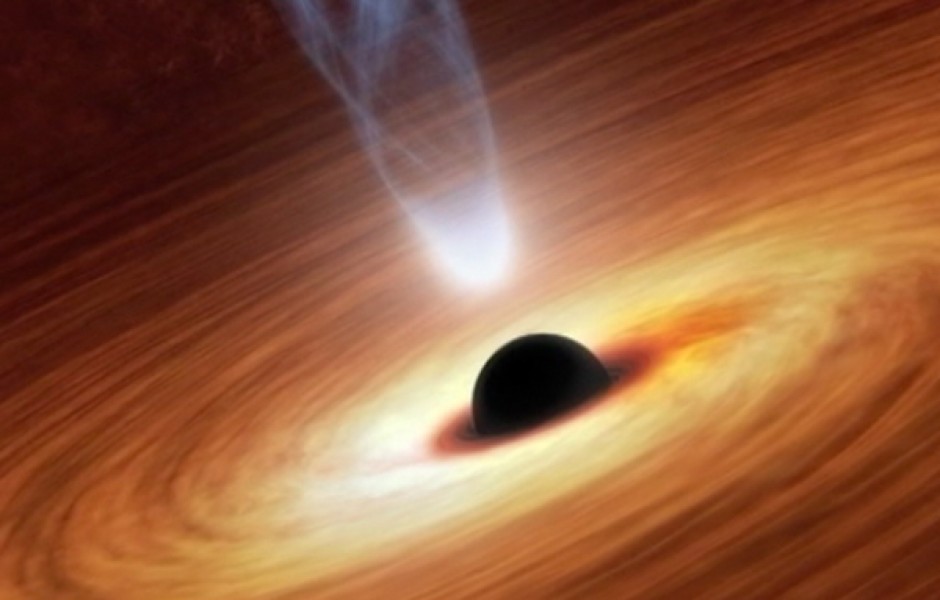Does science increase wonder or quash it? Over a hundred years since Einstein poured the foundation for modern physics and postulated the existence of gravity waves, scientists at LEGO, I mean LIGO seem to have proven they exist. Ho-hum?
 Physicists since Einstein have realized that space is not an empty medium, but a flexible fabric, and that gravity is actually the curving and indenting of the fabric of space. So, in a galaxy far far away (the distance it takes light to travel in over a billion years), two huge black holes collided and sent, presumably, space a-rippling.
Physicists since Einstein have realized that space is not an empty medium, but a flexible fabric, and that gravity is actually the curving and indenting of the fabric of space. So, in a galaxy far far away (the distance it takes light to travel in over a billion years), two huge black holes collided and sent, presumably, space a-rippling.
Up until now physicists haven’t been able to detect gravity waves, and even Einstein came to doubt they were real. Yet when Einstein was asked what he’d do if evidence obtained during a total eclipse disproved the bending of light by the gravity of the sun, he quipped, “then I would feel sorry for the good Lord. The theory is correct.”
Arrogance or doubt, the truth will out. To detect gravity waves, and the ongoing ripples from the collision of two massive black holes, experimenters built two mammoth detectors, one in Washington State, the other in Louisiana, each consisting of two tunnels about 2.5 miles in length at right angles to each other. They were able to measure an infinitesimally small relative shrinkage in space, less than the width of an atom’s nucleus.
The biggest splash that this “major discovery in physics and astronomy that could change the shape of scientific inquiry for the next century” has made in the media is from scientists doing bird imitations on YouTube of what they think gravity waves sound like.
LIGO (which stands for Laser Interferometer Gravitational-Wave Observatory) is an astounding feat of experimental physics, requiring many years of work and billions of dollars to build a machine some scientists said would not be able to detect anything.
It attests to what human cognitive capability and emotional strength can do. If even a small minority of people thinking together applied the same intensity of understanding external phenomena to understanding human destructiveness, the ravages to the earth and humanity at our hands would end.
Theoretical physicist Lawrence M. Krauss, in a tellingly anthropomorphic, human-projected piece entitled “Finding Beauty in the Darkness,” says, “Every time we have built new eyes to observe the universe, our understanding of ourselves and our place in it has been forever altered.”
Is that true? No, the opposite is true. The more explanations for nature and the universe science provides, the less most people feel mystery, wonder and harmony with nature, and the more they fear the ‘darkness’ of the cosmos.
Lawrence compares discoveries in science to a Mozart symphony, and says, “I would argue that it is this aspect of science—it’s cultural contribution, it’s humanity—that is perhaps its most important feature.”
“That’s patently false, and it reflects the core problem with science and scientists in the digital age—philosophically they don’t know what they’re doing, and spiritually they don’t [know] where science fits.

Science is not being used to understand our place in the universe, as scientists disingenuously repeat ad nauseum, but to dominate and decimate nature here on earth. There is a reason the most common phrase when speaking of science is ‘science and technology.’ They go hand in hand. Even the old ideal of ‘pure knowledge’ has become a quaint relic of the past.
Science can only help us understand our place in the universe if the discoveries and knowledge of science are used to inspire and check philosophical and spiritual insights. Explanation without self-knowing does not inspire and increase wonder however; it quashes it.
The religious mind has nothing to do with beliefs, or venerating popes and bishops dressed in medieval garb. The religious mind complements the scientific mind when the religious mind completely lets go of beliefs, rituals and traditions, is deeply quiet and feels wonder and reverence for life.
At the same time and in the same person, the scientific mind complements the religious mind when the scientific mind is able to set aside its knowledge, and be completely aware, present and still.
Then one feels the mystery and wonder of life again. Then one feels something science, when it is put first, denies, something beyond words and knowledge, which can only be called sacred.
Martin LeFevre

